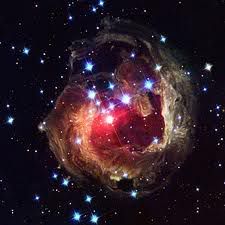
We can make scientifically valid God arguments. we don't need to because bleief in God is a personal issue. It's existential it's phenomenological. It's not science. I don't have to have the same kind of proof. Atheists get into the fortress of facts, which si not science, but they pretend it is. Its' their ideolgoical template. So you are so used to that that you start thinking everything has to be proved scientifically. Science can't prove everything. most things can't be proved and there is no guarantee they can or will be. Since rational warrant is the best we can do on God talk that's the standard we don't need a bigger one. Belief in God makes my life work. that's all I need. I don't need scinece I don't need atheists corn ball special pleading. I only need my little search for truth by myself without your permission.
got it?
Demand for empirical evidence of God is unfair and misplaced
God is beyond our understanding. God is not given in sense data and thus the demand for sense data proving God is silly and useless.
In one of their typically hypocritical moves those who claim they don't believe in the fortress of facts concept will turn around and take a page right off the heart of the fortress concept and demand empirical proof of God and when it doesn't come they will say "this is proof there's no God." But they have arleady been told "God is not amenable to this kind of evidence.
We know form scinece that there are many thing in scinece, whole knowledge levels above the scientific that are not given backed by any direct evidence and yet scientists assume they are real or that they could be real.
*big bang
*singularity
*string membranes
*dark matter (getting close)
*direct observation of *neutrinos (were historically *accepted as real long before any direct evidence, still don't have direct observation of them).
*Hawking's no singularity thing, (although that's pretty much set aside but it was accepted up front on the premise that we can't have direct proof).
Multivese (no direct proof, mathematical doesn't count).
that means not having direct evdience is not any kind of proof that they are not real.
The facts are just that we have to use other means of understanding God. that's all there is to it and theology has met that challenge by developing with scientific thinking, as with process theology.
Several reasons why it's not fair to expect direct evidence:
(1) God is not a thing in creation.
He's not on a par with objects in the world. he's the basis of all reality. that would be like expecting to find a piece of the laws of physics or the door to the unified field.
(2) God is not a big man in the sky but is being itself.
God is in everything. He's too big and too basic to be seen.
(3) God is the mind that thinks reality
we re figments of God's imagination. That means we can't get outside the thought and see what's thinking it. How could we possibility do that? I hate the film "the Matrix" no one bring it up. I prefer the holodeck on Star Trek TNG. how could a character of the Holodeck never know the truth?
(4) God's wants the search.
God doesn't' want ot make it obvious. He makes it possible for us to find him but we have to seek. the reasons are laid out in my thing on soeteriological drama.
http://religiousapriori.blogspot.com...cal-drama.html
Atheists might say God could make it obvious if he wanted to. Yes, but he doesn't want to because that would frustrate the process of interlinking values. Its' not unfair because the possibility is there. you only have to let go of your ego and seek God though the means that he may be found.
